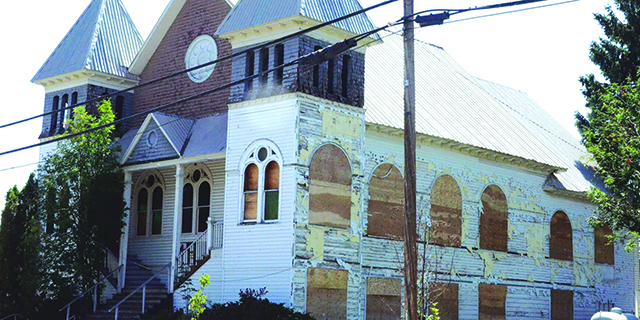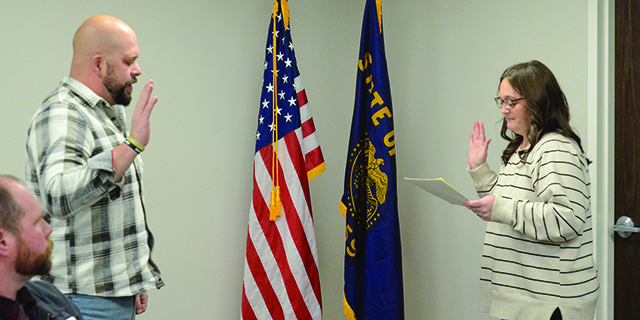MAIN STREET: Our personal stories are immigrant tales
Published 5:00 pm Tuesday, June 18, 2013

- <p>Rich Wandschneider</p>
When and how did your people come? Were they religious refugees come to make the world right, Dutch traders come to make their fortunes, or French trappers on an adventure? Were they chased from Ireland by the potato famine, running from the draft in Prussia, or fleeing chaos in Czechoslovakia? Were they brought for sale and slave labor, or contracted from distant Asia to harvest crops, build railroads, dig tunnels, or cook for the US Navy? Was your great-grandmother a picture bride from Japan or a war-bride from France?
In the midst of the strident current debate about immigration, I wonder if participants stop to think about their own beginnings in this country. Im 70 now, but still learning, and learning how much I dont know. I learned recently that well over half of the European immigrants to North America from 1600 to the 1776 were indentured servants. Hard times in England and failed crops in Scotland sent fathers to ships captains with their sons and daughters. They signed contracts with no compensation to themselves, but, they hoped, leases on life for their offspring that gave the captains the obligation to feed and care for their children on the long voyage, and the right to sell them into indentured servitude in the New World. Typical contracts ran for four to seven years, at the end of which the servant became a free man or woman who could enter into the society and economy.
Trending
From its inception, our country has been alternately welcoming and stingy at the door: the magnanimous periods reflected in the famous quotation on the Statue of Liberty: Give me your tired, your poor/ Your huddled masses yearning to breathe free/ The wretched refuse of your teeming shore./ Send these, the homeless, tempest-tossed, to me The stingy periods, often with a racial tinge, exhibited in exclusion laws that banned Asians from citizenship, or quotas aimed at limiting the numbers of people from eastern and southern Europe and the Middle East. In others words, quotas severely limiting the number of Jews, Poles, Serbs, Italians, Greeks, and others considered undesirable at a given time.
More likely than not, some of your forbears came involuntarily, or as children, numbed by cold, hunger, and removal from all that was familiar, hanging onto parents who brought them or uncles and aunts who sent for them, wrangling them through the strange and ever-changing immigration laws and social, religious, and political prejudices of the day.
The German side of my family came in the 1880s, at the height of German immigration. My grandfather was 2. They came to the Midwest, where German families farmed and built breweries, bakeries, and sausage factories. If they werent dodging a Prussian or German army draft, they were certainly running from a century of chaos as a unified Germany formed out of ancient empires and small feudal states. They came to a country newly emerged from a Civil War, expanding west, using immigrants to settle lands only recently occupied by Indians only a generation after the Sioux were chased from Minnesota.
The Norwegian side ended up in Minnesota in the late 1800s and early 1900s. In 1967 I found the farm my grandfather left in Norway one brother and his one son the remaining stewards of the place, recalling the older brothers who had gone to the New World rather than carve the place another time. I think the two oldest came to Canada first, then smuggled or snuck or walked across the border and somehow gained their citizenship.
Mines a tame story, but like all of our stories fits into the involuntary trips and immigrant dreams of ancestors and the immigration policies and prejudices in effect at the time of arrival. And like many immigrant stories bumps directly into Indian policy Indian wars and Indian removal; the job of new immigrants to make what had been Indian lands agriculturally productive.
We are a nation of immigrants, and, miraculously, the oldest immigrants, who probably came across the Bering Strait from Asia thousands of years ago, are still among us, some of them retracing migrations of their people north and south, east and west across the continent before European arrival and through Euro-American expansionism.
Trending
Our nation of immigrants is a wonderful and complicated place. Those who make the laws and bellow to lawmakers about current immigration policy might check family and national history on the subject as they debate and craft new law.
Main Street columnist Rich Wandschneider directs the Alvin M. and Betty Josephy Library of Western History and Culture housed at the Josephy Center for Arts and Culture, located in Joseph.









